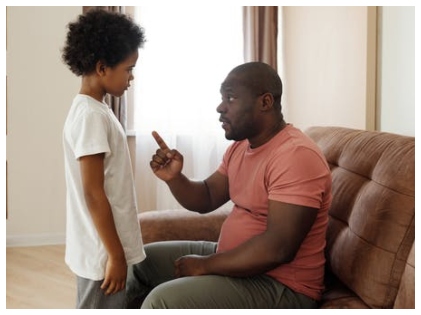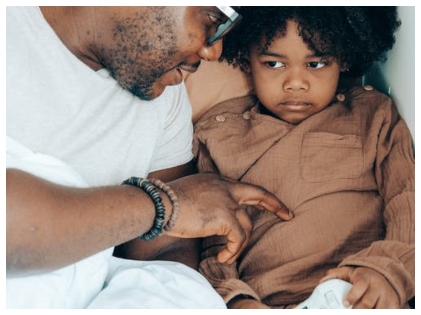
This Is How You Should Talk To Your Kids About Mental Health

Most parents find it weird talking to their kids about their mental health issues. They prefer not to disclose anything and believe in hiding behind the stigma. Instead of being upfront and honest, they shy away from what has been going on in their lives all the while. The parents often overlook the fact that they do have a moral obligation towards their children and keeping their kids in the loop is of absolute importance. Talking to your kids about your mental health issues is the first thing that should be on your mind. How to do that? Read on to learn more.
Inform Your Kids
 As soon as kids come of age and start realizing that their mom and dad are quite different from other moms and dads, it’s the appropriate time you need to sit down with them and have a detailed discussion. If they fail to understand the issue, it’s absolutely normal. A new day comes with a new opportunity for more education. Choose a time when your family can sit down and have a frank discussion regarding mental health. This would be an apt platform for your kids to discuss and ask questions freely. The whole affair should be candid and informal. When you and your family come together at the end of the day, let your little one know what you have been doing throughout the day or whether you need any support from them.
As soon as kids come of age and start realizing that their mom and dad are quite different from other moms and dads, it’s the appropriate time you need to sit down with them and have a detailed discussion. If they fail to understand the issue, it’s absolutely normal. A new day comes with a new opportunity for more education. Choose a time when your family can sit down and have a frank discussion regarding mental health. This would be an apt platform for your kids to discuss and ask questions freely. The whole affair should be candid and informal. When you and your family come together at the end of the day, let your little one know what you have been doing throughout the day or whether you need any support from them.
Talk About The Medicines You Are Taking
This opinion might not be popular with many, but kids should be well-informed about what kind of medications their parents are taking. Medicines that are taken for depression can have a particular set of side-effects, while medications for psychosis and anxiety will most likely also have a different set of side-effects. It’s important for your child/children to know that taking medicines for your mental illness is something you don’t have a control on. It’s not what you like, but it is what you need and in turn, helps. It’s completely fine if your children don’t realize the gravity initially. Give them some time. They surely will. However, it all boils down to how you are conveying things to them.
Continue The Conversation
Informing your kids know all about mental health must not stop once they set their foot into the outside world. School is among those first few places, where they begin to learn the basics. School teachers and counselors must carry out their responsibilities of teaching the students regarding mental illness and suicide. A non-biased counselor can make them feel comfortable and children can inquire whatever they have in their mind regarding mental health issues. Parents are not mind-readers and can’t pretend to be so. Hence, it becomes imperative to have a detailed discussion with your kids even if it seems to be a bit cumbersome. The more education they would receive on mental well-being, the better will it be for them as they grow up.
What Do You Do When Your Kid Starts Asking You Questions?
 In all probability, you don’t want your child learning information from unreliable sources or from people who aren’t much educated on such issues. It’s always preferable that they get to learn from you. You need to speak up if you don’t want your children to be conversant with all the callous things. If you start discussing mental health with your kids, they can transfer the knowledge and teach others about the same. They would have all the information they need at their fingertips and can rectify someone who spreads wrong stuff. So get into action right now before it gets too late.
In all probability, you don’t want your child learning information from unreliable sources or from people who aren’t much educated on such issues. It’s always preferable that they get to learn from you. You need to speak up if you don’t want your children to be conversant with all the callous things. If you start discussing mental health with your kids, they can transfer the knowledge and teach others about the same. They would have all the information they need at their fingertips and can rectify someone who spreads wrong stuff. So get into action right now before it gets too late.
The bottom line is that you, as a parent, need to come out of the stigma you have been holding on to for such a long time. Your kids need you and you surely wouldn’t want them to have a wrong perception about your situation. If you are a parent suffering from mental illness, try to educate your children on mental health and fill your house with as much love as you can. Feel free to talk to them and educate them with what you have yourself experienced. A little knowledge is a dangerous thing. So inform your kids before time runs out or call a helpline.
More in Mental Health
-
`
5 Reasons Why Dad’s Side of the Family Misses Out
Family bonds are intricate and multifaceted, often creating a unique tapestry of connections. However, many people notice a peculiar trend: stronger...
July 12, 2024 -
`
A Quick Guide on How to Get Short-Term Disability Approved for Anxiety and Depression
Living with anxiety or depression poses unique challenges, particularly in the workplace, where stress can exacerbate symptoms. For many, short-term disability...
July 5, 2024 -
`
Why Do People Feel Sleepy After Eating?
Is feeling sleepy after eating a sign of diabetes? Well, not directly. There are many reasons why you feel drowsy after...
June 20, 2024 -
`
What Is High-Functioning Depression? Symptoms and Treatment
High-functioning depression may not be a term you hear every day, but it’s a very real and challenging experience for many....
June 13, 2024 -
`
Kelly Clarkson’s Weight Loss Ozempic Journey – Debunking the Rumors
In a refreshing moment of transparency, Kelly Clarkson, the beloved singer and talk show host, sheds light on her remarkable weight...
June 3, 2024 -
`
What Is the Best Milk for Gut Health and Why?
In recent years, the milk section at the grocery store has expanded far beyond the traditional options. While cow’s milk has...
May 30, 2024 -
`
Do Dental Implants Hurt? Here’s All You Need to Know
When you hear “dental implants,” you might wince at the thought of pain. But do dental implants hurt as much as...
May 24, 2024 -
`
5 Key Differences Between A Psych Ward & A Mental Hospital
Curious about the differences between a psych ward and a mental hospital? You are not alone. With the mental health conversation...
May 16, 2024 -
`
It’s Official! “Selling Sunset’s” Christine Quinn & Husband Christian Dumontet Are Parting Ways
Have you ever found yourself unexpectedly engrossed in the personal lives of celebrities, especially when their stories take dramatic turns? Well,...
May 9, 2024










You must be logged in to post a comment Login